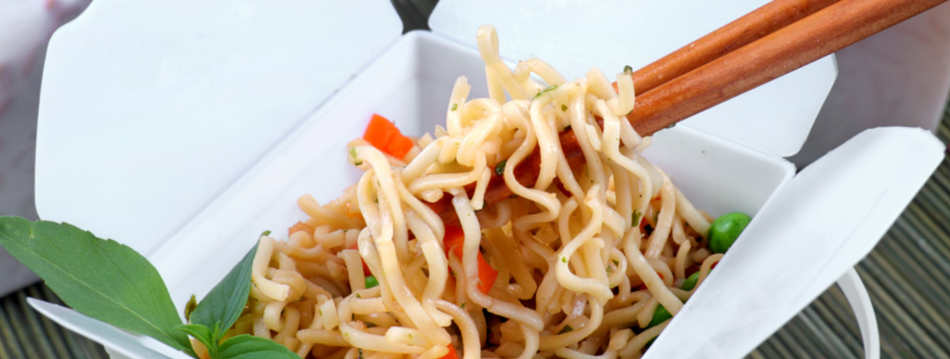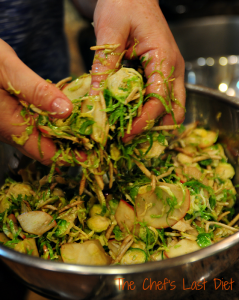Love it or hate it
No matter your approach to it there is a constancy to the work of cooking. Even the simplest tasks require some degree of preparation, assembly, and cleanup. If you hate it the work is odious, if you love it can literally and figuratively feed you. Either way, most of us must do it at least sometimes.
What exactly do people hate about cooking? Is it the work or the outcome?
This is a chicken/egg sort of riddle. Do people hate the work necessary to produce a decent meal, or is it that a half-hearted effort to produce a meal results in a bad one?
Cooking with love
Despite the fact that I would definitely claim I cook with love, it’s not love that separates good food from bad. Like pretty much everything, success at cooking demands a willingness to do the work. There are scores of shortcuts and hacks, and dozens of really easy and good dishes you can make with minimal effort, but you are going to have to crack those eggs and beat them if you want an omelet.
When I was in my twenties I briefly shared an apartment with a woman who sewed all her own clothes, including button-down Oxford-type shirts. When I asked her how she managed this miracle she explained that it didn’t take much more time to do it right and carefully than doing a sloppy job and having to redo her work. It was life-changing advice! Cooking is the same.
Skill not talent
Cooking is a skill, not a talent. Cooking astonishing food is a talent, but making a decent roast chicken is a skill. I would never try to talk anyone out of hating to cook, I hate cleaning, and I know that the longer I put it off the longer it takes to do, and I cannot afford to have someone do it for me, so I clean.
Talent needs skill, but the inverse is not true. To be a good cook takes more skill than talent, and not that much skill. Apologies to all my friends who are excellent cooks, but my proposition is that it’s your skill, not your talent that makes you good. You have done the work and mastered the skills by building an understanding of food and through practice.
Remember restaurants?
Who doesn’t miss going out to restaurants where the food is better than at home? In my experience, many professional cooks do not love cooking. Some don’t even love food. I am not referring to Chefs (upper case intentional) but the people who are preparing most of the food you consume at restaurants. Many of them work at restaurants because they started there as dishwashers, worked their way up, and stayed. They don’t talk or think about food; it’s a job.
In other words, any schnook can be a decent cook if they’re willing to practice. The work of cooking is no more than that, and like writing, driving, tennis, or playing the piano practice will improve your skills, and make it easier, and the easier it gets the less work-like it feels.
The theory of lousy cooking
I have heard more than one person explain their theory that things they like should taste good together, and the more of those things they put together the better something should taste. I understand the concept, sort of. Gumbos and stews are a good illustration of putting lots of good things together to get something that’s better than those things are alone. Yet, adding peppermint to a gumbo would, in my opinion, ruin it.
Lousy cooking is missing the practice of balance and complement. Brilliant cooking is challenging that balance to outstanding effect. Most of us fall somewhere in the middle of that continuum. If part of doing the work is experimentation an equal part is relying on classic combinations. Add one unexpected ingredient and you may get something surprisingly wonderful. Add three and you never know how great any single item might have been.
Practice doesn’t make perfect
Practice is the work, but facility rather than perfection is the goal. You have probably been cooking more in the last four months than you generally do in a year. If you reflect on then and now, I ask you these three questions:
- Has it gotten easier?
- Does your food taste better?
- Has the work of cooking paid off?








.jpg)





Asha - This is such an interesting question to explore; talent or skill. Focusing on cooking/food is particularly relevant at the moment too. That was a nice way to bring the reader with you. You make some particularly good points about balance and understanding ingredients. Like writing, I find that breaking the “rules” in cooking works best when you understand what the rules are and why they’re there. The breaking of rules then becomes a deliberate act for a particular, chosen effect. On a side note, my kids and I recently bought and tried Mountain Dew flavoured Doritos. Whoever came up with that combination could stand to read this essay.
nrlowell@comcast.net - Asha, As always, thank you for your feedback. I was already deep into finishing this piece when I read your “Who Knew?” and had a bit of a chuckle. Funny how ideas often have unrecognized outside forces pushing them forward. Today I read another piece elsewhere that echoed that same sentiment of practicing something improves performance, who knew?. All the best!
Rajib Sarkar - Really nice heading “Practice doesn’t make perfect”. Perfection makes a goal of success. Cooking is an art, when you mix that art with balanced nutrition then it’s a wonderful result.
Venice - As a person who enjoys cooking, I agree that skill does make an impact. I started off with a little bit of talent (courtesy few genes from my grandmother) but was just an okay cook. A friend of mine has pure talent as well as skill. Like you mentioned in ‘The theory of lousy cooking’, about balance and complement, he is one of the few people I know who creates signature dishes where the ingredient proportions always hits the jackpot. I took notes of every minute skill that went into his preparations, and attempted copying them, and there has been a significant improvement in my cooking. I still have to govern the knack of balance 🙂
It was extremely enjoyable to read your post – the paragraph structure makes it seem like I’m reading new chapters. I also admire the brevity of your content – you state your point, illustrate them, and move on. Most of all, I love that you brought up this poignant topic – especially since this pandemic has seen more of us in the kitchen.
nrlowell@comcast.net - Thank so much for your feedback, I’m glad this piece resonated with you.
As someone who has cooked as an amateur, a professional, and then again as a home cook, I find I never stop learning, experimenting, failing, and succeeding.